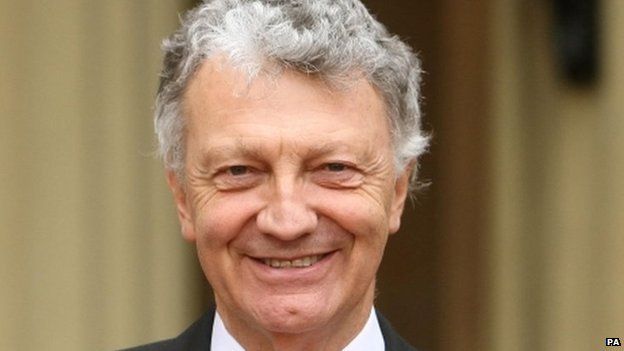Charity Commission warns of Islamic extremism threat
- Published

Islamic extremism is the "most deadly" threat to charities in England and Wales, the Charity Commission has said.
Chairman William Shawcross warned that while the issue is not currently widespread, it is growing.
Mr Shawcross told the Sunday Times the regulator is taking action against charities sending money to various groups in Syria.
He has asked the prime minister for measures to stop those with terrorism convictions from setting up charities.
Currently, those convicted of money laundering or terrorism are not automatically barred from doing so, or from becoming a trustee.
'Vigilant'
Mr Shawcross said: "It is ludicrous that people with convictions for terrorist offences are not automatically disqualified from serving as charity trustees."
The regulator is currently investigating a number of charities raising funds for causes in Syria.
Mr Shawcross advised that agencies had to be vigilant.
"I'm sure that in places like Syria and Somalia it is very, very difficult for charities always to know what the end use of their aid is, but they've got to be particularly vigilant," he said.
"The problem of Islamist extremism and charities... is not the most widespread problem we face in terms of abuse of charities, but is potentially the most deadly.
"And it is, alas, growing."
'Salami-slicing'
In the interview, his first since becoming chairman of the Charity Commission in 2012, Mr Shawcross also said its funding is currently "unsustainable".
"We need two things if we're to continue to improve the commission's performance," said the biographer and author.
"We need a more sustainable funding position and we need stronger legal powers to tackle abuse and mismanagement.
"I know public finances are tight but our funding situation is unsustainable.
"We cannot keep responding to continuous salami-slicing of our budget."
- Published9 October 2013
- Published24 April 2013